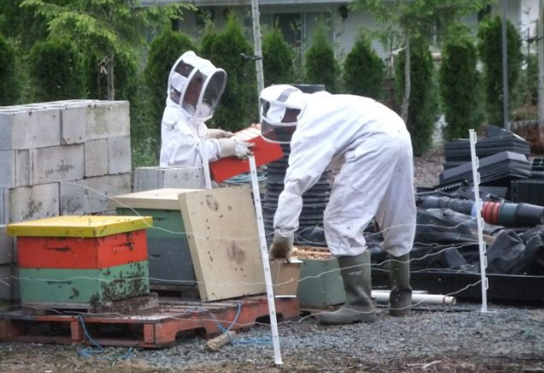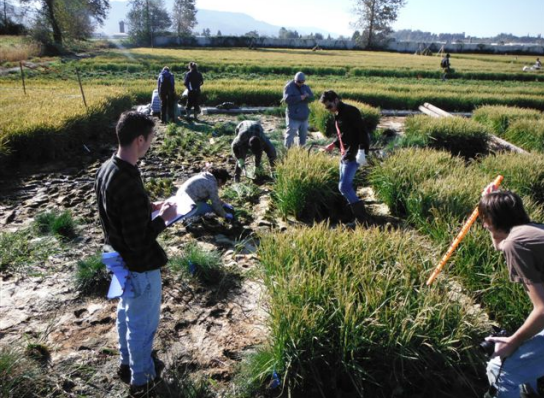By Katherine Gibson (Contributor) – Email
Print Edition: May 22, 2013
Summer is almost upon us, and with it the anticipation of a delicious blueberry season – a season that is now at risk, due to a bee shortage.
In previous years, bees have been sent from across the country to help pollinate the large amount of plants here in the Lower Mainland.
This year many of these suppliers are no longer available.
As UFV professor Tom Baumann explains, “the lack of previous bee suppliers, especially from the prairies, has left a vacuum – a vacuum that cannot be filled locally.”
In the Fraser Valley alone, an estimated 120 million pounds of blueberries will be harvested this coming season – a harvest completely dependent on bees.
“We need a lot more bees,” Baumann says. “Every single flower has to be pollinated three or four times to do the pollination properly.”
While this year’s crops remain dependent on this natural means of fertilization, blueberry seasons may not face this same pressure in the future.
Through research conducted at UFV’s Pacific Berry Resource Centre, Baumann and students, with the help of the blueberry industry and the BC Ministry of Agriculture, have successfully created a new natural spray capable of tricking blueberry plants into believing that they’ve been pollinated – whether or not they have come into contact with any bees.
“This spray is naturally occurring and there is nothing synthetic about it,” Baumann explains. “It’s exciting because we’ve essentially found a way to trick the blueberry plants into keeping their fruit.”
While Baumann agrees that bees can never be replaced, this new spray will give blueberry farmers the capability of superseding pollination should they be faced with a similar shortage next year.
“Bees should remain in the fields regardless,” he continues, “but we’ve got something really big here with this spray.”
Although it is true that this discovery will not be able to aid those blueberry fields in tough shape this year, Bauman still predicts one of the best blueberry yields ever in the Lower Mainland.
“This situation is definitely not as doom and gloom as it may appear,” Baumann says. “We are likely going to cross the 10 million blueberry pound mark easily, and I am betting on 20 million pounds.”
Baumann’s expectation is a welcome relief to the industry and consumers alike – especially those looking forward to a summer full of the tasty blueberries we’ve come to associate with summer days spent in the Fraser Valley.




